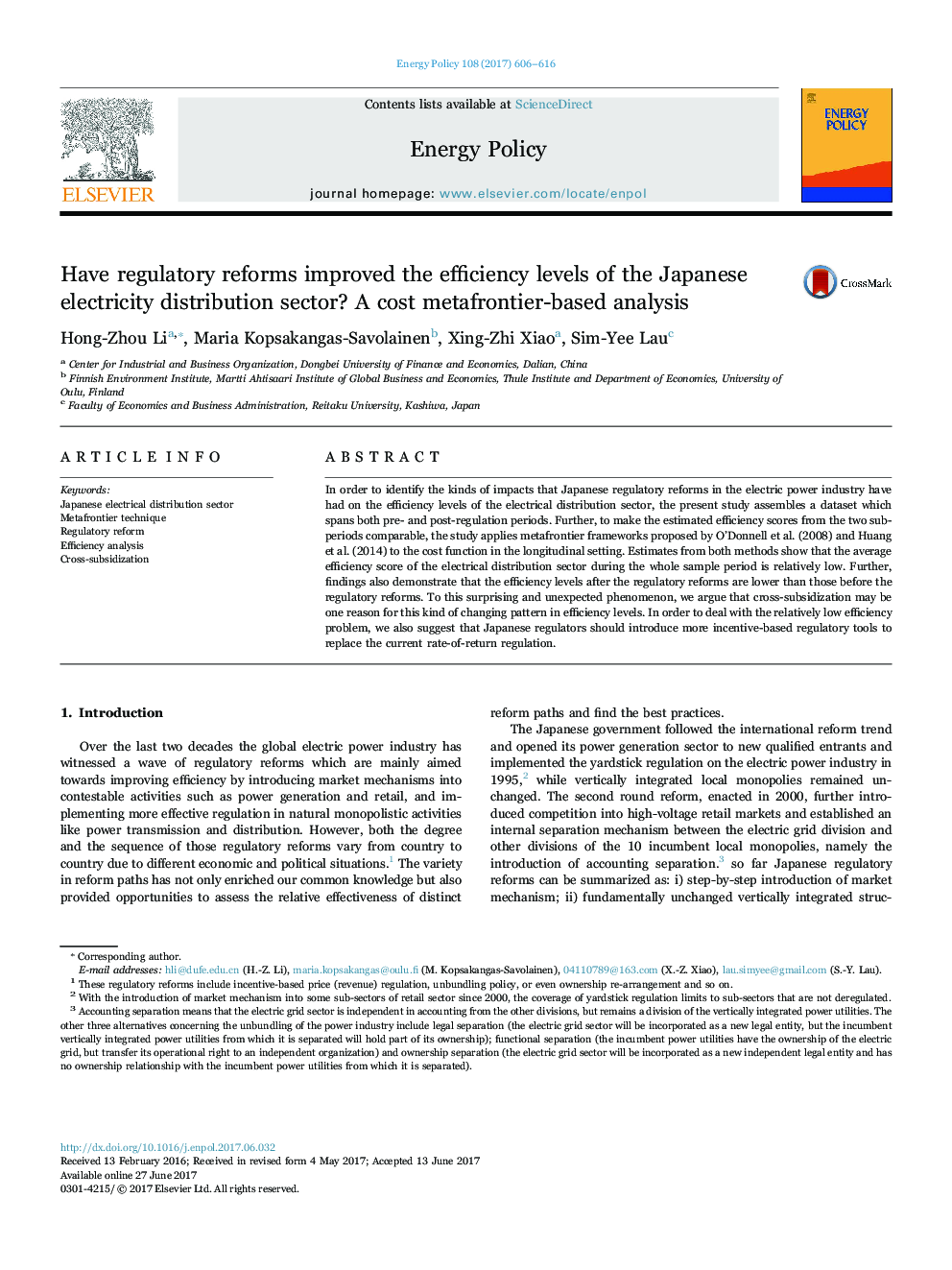| Article ID | Journal | Published Year | Pages | File Type |
|---|---|---|---|---|
| 5105610 | Energy Policy | 2017 | 11 Pages |
Abstract
In order to identify the kinds of impacts that Japanese regulatory reforms in the electric power industry have had on the efficiency levels of the electrical distribution sector, the present study assembles a dataset which spans both pre- and post-regulation periods. Further, to make the estimated efficiency scores from the two sub-periods comparable, the study applies metafrontier frameworks proposed by O'Donnell et al. (2008) and Huang et al. (2014) to the cost function in the longitudinal setting. Estimates from both methods show that the average efficiency score of the electrical distribution sector during the whole sample period is relatively low. Further, findings also demonstrate that the efficiency levels after the regulatory reforms are lower than those before the regulatory reforms. To this surprising and unexpected phenomenon, we argue that cross-subsidization may be one reason for this kind of changing pattern in efficiency levels. In order to deal with the relatively low efficiency problem, we also suggest that Japanese regulators should introduce more incentive-based regulatory tools to replace the current rate-of-return regulation.
Related Topics
Physical Sciences and Engineering
Energy
Energy Engineering and Power Technology
Authors
Hong-Zhou Li, Maria Kopsakangas-Savolainen, Xing-Zhi Xiao, Sim-Yee Lau,
